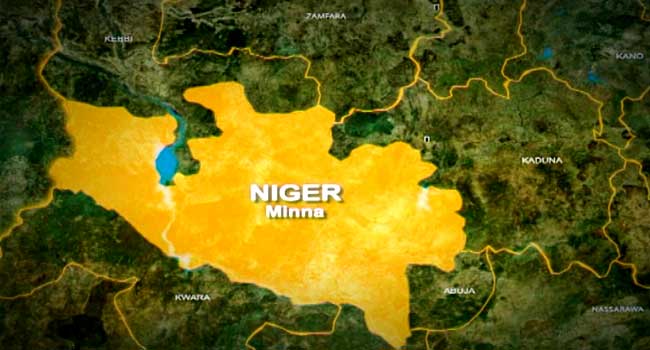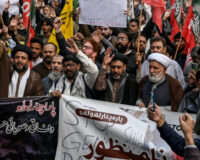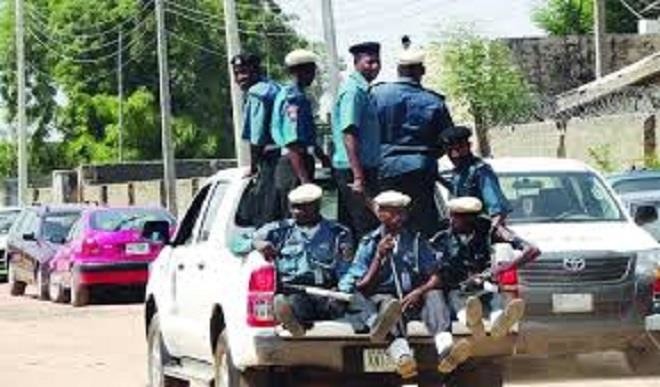By
Abimbola Adelakun
During the governorship and state house of assembly elections in March, the president, Major General Muhammadu Buhari (retd.) enjoined Nigerians to go ahead and collect any monies distributed by vote-buying politicians but still vote their conscience. Ideally, it should be shocking that a country’s president—especially one who came to power as an anti-corruption crusader—would shamelessly endorse an electoral infraction. But he has let us down so often that pointing out this error will be a waste of everyone’s precious time.
The more annoying part of that thoughtless statement was that it negated his previous posturing on the naira redesign policy to protect electoral integrity. When he met King Charles in the UK in November, he insisted the policy had come to stay because it would protect Nigerians from those who would use their lush resources to manipulate the election outcome. After reiterating that he would ensure a level playing field for contestants, this conviction would swing only months later. So, if ensuring election integrity was not a deep resolve, why take people through so much pain and hardship?
This man and the “Sai Baba” men watched as Nigerians, already severely impoverished by his uninspiring leadership since 2015, underwent the diminishing effects of the poorly conceived and shoddily executed naira redesign. The dwindled loss of livelihood especially crushed the small-scale producers who work in the agricultural produce sector and operate within the informal economic system. We are not a society that knows how to count and account for lives and resources, so we will never be able to adequately comprehend the full scale of the debilitating effect of that policy. However, it is still certain that people died from the stress, and some of the crippled businesses will never recover. All for what?
Naira redesign policy was a disaster that Buhari superintended over as a military dictator. Even though he saw the brutal outcomes of the policy, he still repeated it 40 years later. As it turns out, there was no larger vision for either our elections or democratic processes that drove the agenda. There was no gain for democratic institutions to which they were committed, it was just another one of the sadistic ideas that Buhari cranks out of his sociopathic mind each time he feels that Nigerians have not suffered enough. If there was no profound objective to be derived from the whole redesign policy, and he himself could advocate people taking money from their corrupt politicians, why did he not just leave people to collect their N5000? Why break things in the guise of trying to fix them?
That was the sort of ineptitude that defined Buhari’s regime. Several policies unleashed severe suffering but were hardly followed by any bigger plan to make the outcome meaningful. They banned food importation to stimulate local agriculture, but all we have to show for the economic ingenuity is the soaring costs of food prices. He closed the borders for almost two years to galvanise local manufacturing, making life even more unaffordable. After accumulating losses and hardship, they re-opened them. They could not point out anything remarkable they achieved through it. They said those ideas were why countries like China flourished, but ended up proving that half education is bad especially when running a country.
In not wanting to deal with either the complexities of planning or the messiness of human behaviour, Buhari’s regime treated social engineering as a process that could be automated. For instance, to make Nigeria a cashless economy, his administration restored far less cash into circulation than they took out in the form of the old notes. They imagined they could force people to use electronic means without first ensuring that the infrastructure to support such a massive scale of transaction was in place. That is his standard approach to governance: throw people into a desert and expect them to either stimulate their creative impulses and invent food, or eat sand and die.
Even his anti-corruption agenda was half-hearted. With too many Faustian bargains he had made to get to power, the best anti-corruption agencies achieved under him was to pursue the small fry while the real thieves of the Nigerian patrimony sashayed freely.
Last Friday, while giving his farewell message at the final Sallah homage at the Presidential Villa in the FCT, he reportedly said, “Having been a governor, minister, and the president twice, I think God has given us an incredible opportunity to serve as your president. And I thank God for that. So, please whoever feels I have done wrong to, we are all humans. There is no doubt I hurt some people and I wish you will pardon me. And those that think that I have hurt them so much, please pardon me.”
Here are two things he should note: First, we do not think or feel we have been hurt by his leadership, no. Those words suggest that the visceral impacts of his punitive leadership are simply a matter of individual perspective rather than objective reality. We have receipts that substantially demonstrate that he stole eight years from us. From rising and multidimensional poverty to out-of-school children rates, insecurity, corruption, and overall diminished quality of life, Buhari’s failure is not a matter of mere opinion or emotions. We live the insalubrious effects.
Second, saying we are all humans is fallacious. Who would look at the past eight years of his inhumane administration and not wonder if Buhari has a drop of humanity in him? When you look at Buhari, when you study his characteristic nonchalance to the high hopes and aspirations of Nigerians that his administration serially frustrated through their ineptitude, you cannot but understand why humans invented the concept of Satan. Some people’s wickedness is so unique that you need idioms of the supernatural to explain that degree of malevolence. Under Buhari’s watch, people were routinely kidnapped, and there was at least an instance where a community had to organise a fundraising to get money to retrieve their children abducted from school; entire communities were imperiled by rampaging herdsmen; prisons were serially attacked; terrorists and bandits killed poorly-armed security personnel in such high numbers that their bosses allegedly resorted to burying them secretly in order to hide the casualty rates; even the Nigerian Defence Academy was breached, and an Airforce Fighter jet shot down. Despite all the restlessness that defined his tenure, the man gaslit Nigerians by insisting we were doing better than ever before. How does that lack of fellow feeling qualify him to be categorised as “human”?
Buhari admitted he got all he wanted by becoming the president, but what of Nigerians? What did they get in return? Now he says he will no longer be burdened by the country’s issues. If over-solicited after May 29, he promised to relocate to Niger republic across the border. He might have said that as a joke, but that is in fact quintessential Buhari. He has a pattern of expecting others to do things he ought to do because he is lazy and inept. He is never responsible for anything. He got into power by pretending to be poor because he was incorruptible even though his election was sponsored by people whose hands were soiled by public corruption. He achieved little, and now expects Nigerians to clean up his failures.
For him to ascribe his failures to the fallibility of humanity when he barely even tried is another failure in itself. As someone who has had the privilege of living off Nigeria’s resources his entire adult life, Buhari failed spectacularly because he took and took and took but never gave back. He has not only failed as a leader, but also as a human being. He does not deserve forgiveness from even an all-merciful God.







